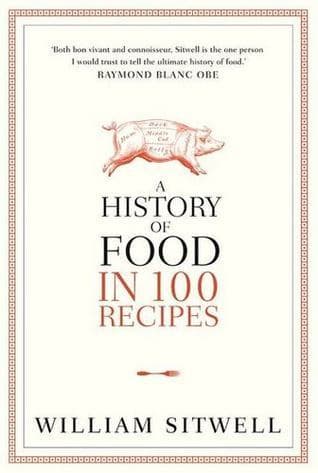
Book Review Summary: A History of Food in 100 Recipes
Introduction
A History of Food in 100 Recipes is a captivating book that delves into the fascinating history of cuisine. Written by William Sitwell, a culinary expert and editor of Waitrose Kitchen magazine, this book explores the ingredients, cooks, techniques, and tools that have shaped our love of food. It takes readers on a journey through time, revealing the origins of various recipes and the individuals who invented them. Sitwell's incisive and humorous narrative brings to life the culinary landscape we now enjoy, with contributions from renowned British chefs such as Marco Pierre White, Delia Smith, Heston Blumenthal, Nigella Lawson, and Jamie Oliver.
About William Sitwell
William Sitwell, the author of A History of Food in 100 Recipes, is a well-known culinary expert and journalist. He has worked as a food editor for various publications, including Waitrose Kitchen magazine, and has appeared on BBC2's 'A Question of Taste.' Sitwell's passion for food and his extensive knowledge of culinary history make him the perfect author to guide readers through this fascinating journey.
Analysis of Views
-
Engaging and Informative: Many readers found the book engaging and informative, appreciating Sitwell's witty and concise writing style. They enjoyed learning about the origins of various recipes and the individuals who created them. The book's concise format made it easy to read and digest, allowing readers to learn about different dishes without feeling overwhelmed.
-
Historical Depth: The book delves into the history of food and cookbooks, exploring how recipes have evolved over time. Readers appreciated the depth of research that Sitwell has conducted, as he uncovers the roots of many dishes and provides insights into the historical context of their creation. This historical aspect made the book more than just a collection of recipes but a celebration of culinary history.
-
Curiosity and Inspiration: The book piqued readers' curiosity by presenting a diverse range of recipes from different time periods. Readers found themselves intrigued by the stories behind these recipes and were inspired to explore their own culinary heritage. The book encouraged readers to delve deeper into the history of food and discover new dishes that they could recreate at home.
-
Lack of Practical Recipes: Some readers felt that the book was more focused on providing historical insights than offering practical recipes that could be used at home. While they appreciated the historical context, they found that many recipes were not suitable for everyday cooking. They wished that there were more practical recipes that they could use as inspiration for their own culinary endeavors.
-
Limited Focus on Non-Western Cuisine: A few readers expressed disappointment that the book primarily focused on Western cuisine, with limited coverage of non-Western cuisines. They felt that a broader perspective on global food history would have added depth to the book. They hoped that future editions would include more diverse recipes and cultural perspectives.
Reasons for Recommendation
-
Engaging Storytelling: Sitwell's engaging storytelling style captivates readers and brings the history of food to life. His witty narrative makes the book enjoyable to read, even for those who may not have a strong interest in culinary history.
-
In-Depth Research: Sitwell's extensive research shines through in the book, providing readers with a wealth of information about the origins and evolution of various recipes. The historical context adds depth to each recipe, making it more than just a simple collection of ingredients.
-
Inspirational Insights: A History of Food in 100 Recipes inspires readers to explore their own culinary heritage and discover new dishes from different time periods. It encourages readers to delve deeper into the history of food and appreciate the contributions of culinary pioneers throughout history.
Reasons for Not Recommendation
-
Limited Practical Recipes: Some readers felt that the book lacked practical recipes that they could use in their everyday cooking. While they appreciated the historical context, they found that many recipes were not suitable for everyday use or lacked detailed instructions.
-
Limited Focus on Non-Western Cuisine: A few readers expressed disappointment that the book primarily focused on Western cuisine, with limited coverage of non-Western cuisines. They felt that a broader perspective on global food history would have added depth to the book and provided a more comprehensive understanding of culinary traditions worldwide.
Conclusion
A History of Food in 100 Recipes is a captivating book that explores the fascinating history of cuisine. William Sitwell's engaging storytelling style and extensive research make it an enjoyable read for those interested in culinary history. While some readers felt that the book lacked practical recipes or focused too heavily on Western cuisine, overall, it provides an inspiring look into the origins of various dishes and the individuals who created them. Whether you are a food enthusiast or simply curious about culinary history, this book offers a fascinating journey through time and offers insights into the evolution of food culture over centuries.